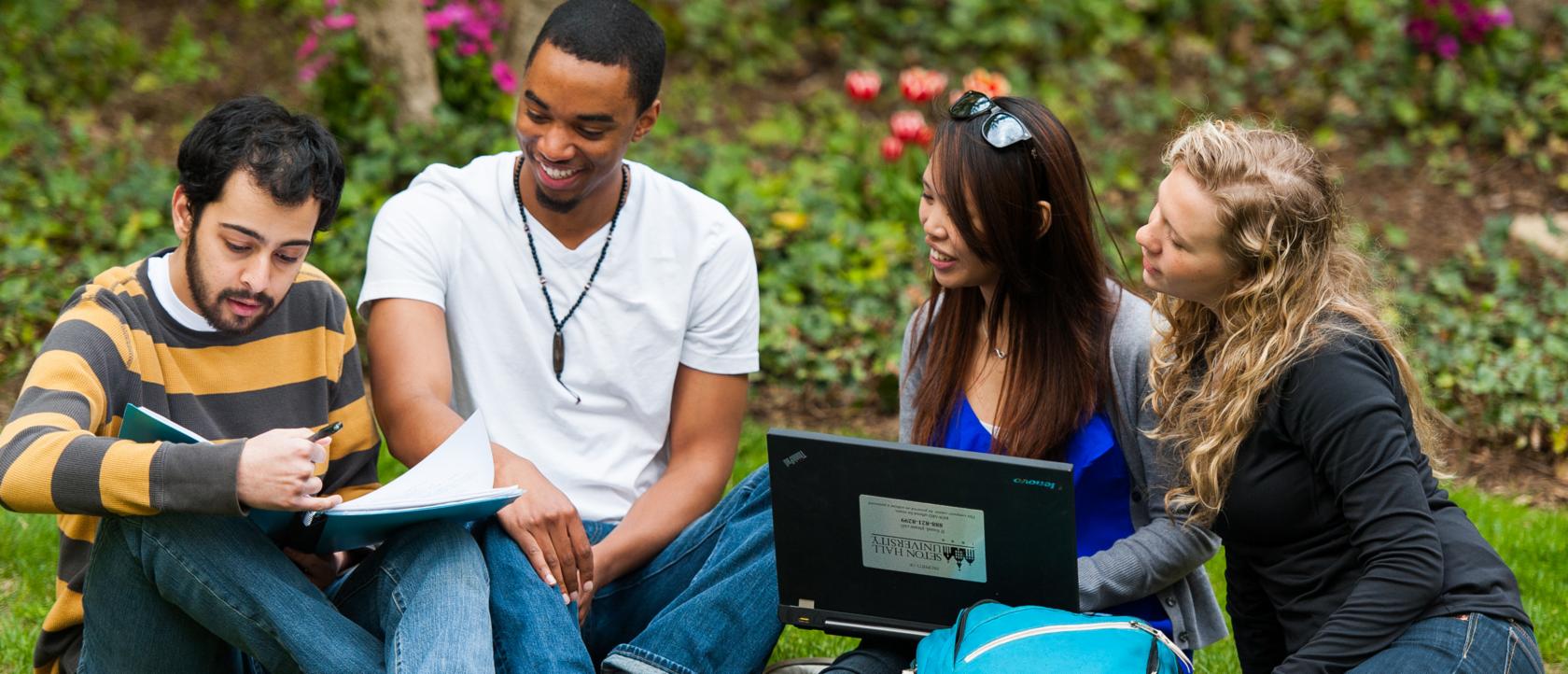Core Curriculum
The hallmark of a liberal education is that it entices a student to examine the tree of knowledge, to see both the distinction and interdependence of its branches. Through its program, the College of Arts and Sciences offers students the opportunity to examine areas of the humanities and sciences in depth, while exposing them to the breadth of the related disciplines.
The following core curriculum is the basis of the education of all students in the College of Arts and Sciences. This statement of the core curriculum begins with a discussion of the aims of a college education and proceeds to a listing of the various elements of the old and new core requirements.
The College of Arts and Sciences recognizes the value of the distinctive and complementary perspectives of humanities, physical and biological sciences, and the social and behavioral sciences in understanding our world and the human condition. Its core curriculum is designed to enable students to be conversant with the goals, methods, and values of these perspectives and to acquire the habits of mind to appreciate and contribute to the constantly evolving body of knowledge.
In order to understand and place in personal perspectives the world in which they live:
- Students will grasp the relationship between themselves as individuals and their communities, and develop an appreciation for the past's influence on the present and the cultural differences and challenges posed by increased globalism.
- Students will display the ability to write clearly and effectively, to read texts critically, to articulate ideas, to reason quantitatively and to use appropriate technology.
- Students will develop the analytical tools required for an appreciation of the strengths and limitations of scientific methodologies and their applications to the natural world as well as human behavior.
- Students will acquire basic interpretive tools to develop an appreciation of human creativity in its many forms, and understand its central place in people's daily lives and rituals.
- Students will appreciate and understand diverse human existence including its spiritual dimension and critically assess their values. In addition to these broad liberal education objectives, students will develop competence in an academic discipline or area of study.
The A&S Core Curriculum
The following are the requirements for the core curriculum of the College of Arts
and Sciences and courses and examinations that fulfill these requirements for students
required to complete 120 credits to obtain a Bachelor's degree from Seton Hall University.
The A&S Core Curriculum focuses on the following seven areas:
- Aesthetics. To acquire the interpretive tools to understand its place in people's daily lives and rituals, students will explore human creativity in its many forms.
- Humanities. To better understand the world in which they live, and how it developed, students will examine the human story through time and place, using history and literature, while equipping themselves with the critical skills to analyze and evaluate evidence, and to understand race, gender and power.
- Language. To increase awareness of cultural roots and traditions, students will demonstrate understanding and appreciation of classical or modern language.
- Rhetoric. To be prepared to speak in public, and to understand the varieties of speech discourse, students will study and practice presentations and other forms of spoken influence.
- Philosophy and Religion. To examine different ethical or spiritual worldviews, students will use the principles of sound reasoning to critically evaluate fundamental moral or spiritual values in making well-informed decisions about the issues of faith or moral issues.
- Science and Mathematics. To sharpen abilities to use and interpret quantitative information and utilize the power of mathematical reasoning to solve problems, students will study mathematical methodologies, modeling and their applications; and to better understand the natural and physical world around them, including the challenges and impacts of discovery, students will examine the scientific principles and practices.
- Social Science. To provide a sound basis for understanding and appreciating human institutions and behavior and to create the capacity for civic engagement, students will explore the foundations of society, culture and government.
A course taken to fulfill one core requirement may not be used to fulfill another core requirement.


